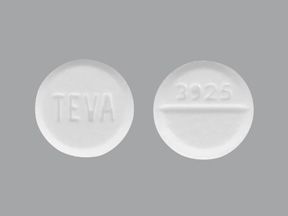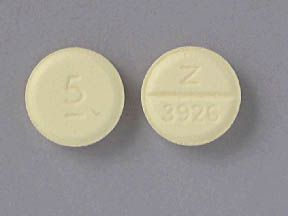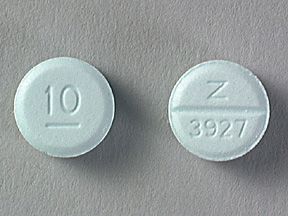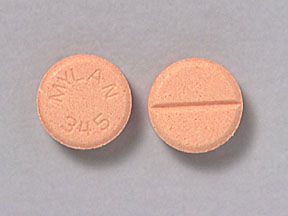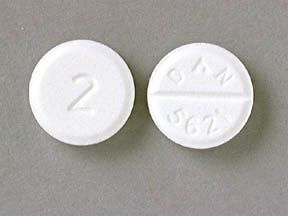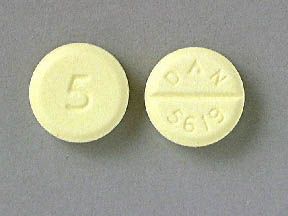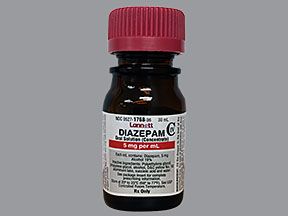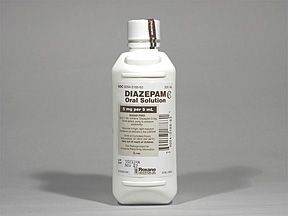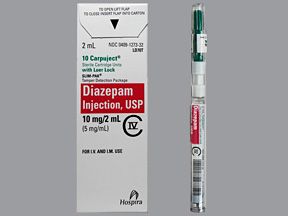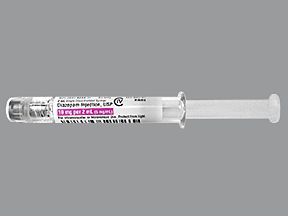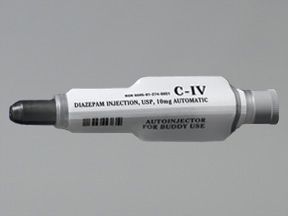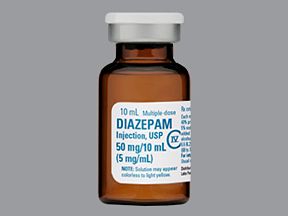- Diazepam oral tablet is available as both a generic and a brand-name drug. Brand name: Valium.
- It is also available as an oral solution, an intravenous injection, a liquid nasal spray, and a rectal gel.
- Diazepam is used to treat anxiety, alcohol withdrawal, muscle spasms, and certain types of seizure.
Diazepam oral tablet is a controlled substance drug that’s available as the brand-name drug Valium. It’s also available as a generic drug. Generic drugs usually cost less. In some cases, they may not be available in every strength or form as the brand-name version.
Diazepam is also available as an oral solution, an intravenous injection, a liquid nasal spray, and a rectal gel.
Why it’s used
Diazepam oral tablet is used to treat the following conditions:
- anxiety
- symptoms caused by alcohol withdrawal, such as agitation or tremors
- add-on treatment for skeletal muscle spasms
- add-on treatment for certain types of seizure
It may be used as part of a combination therapy. That means you need to take it with other drugs.
How it works
Diazepam belongs to a class of drugs called benzodiazepines. A class of drugs refers to medications that work similarly. They have a similar chemical structure and are often used to treat similar conditions.
Diazepam increases the activity of gamma-aminobutyric acid (GABA), a special chemical that can send signals throughout your nervous system. If you don’t have enough GABA, your body may be in an excited state and cause you to have anxiety, get muscle spasms, or have seizures. When you take this drug, you’ll have more GABA in your body. This will help decrease your anxiety, muscle spasms, and seizures.
Diazepam can cause mild or severe side effects.
Diazepam oral tablet can slow down your brain’s activity and interfere with your judgment, thinking, and motor skills. You shouldn’t drink alcohol or use other drugs that can also slow down your brain’s activity while you’re taking diazepam. You also shouldn’t drive, operate machinery, or do other tasks that require alertness until you know how this drug affects you. There are additional effects that you should also be aware of.
The following list contains some of the key side effects that may occur while taking diazepam. This list does not include all possible side effects. For more information on the possible side effects of diazepam, or for tips on how to deal with a troubling side effect, talk with your doctor or pharmacist.
More common side effects
The more common side effects that can occur with diazepam include:
- drowsiness
- tiredness or fatigue
- muscle weakness
- inability to control muscle movements (ataxia)
- headache
- tremor
- dizziness
- dry mouth or excessive saliva
- nausea
- constipation
If these effects are mild, they may go away within a few days or a couple of weeks. If they’re more severe or don’t go away, talk to your doctor or pharmacist.
Serious side effects
Call your doctor right away if you have serious side effects. Call 911 if your symptoms feel life threatening or you think you’re having a medical emergency. Serious side effects and their symptoms can include the following:
- Worsening of seizures. Symptoms can include:
- increase in frequency
- increase in severity
- Changes in the brain or how you think. Symptoms can include:
- depression
- confusion
- feelings of the room spinning (vertigo)
- slowed or slurred speech
- double or blurred vision
- thoughts of suicide
- memory loss
- Unexpected reactions. Symptoms can include:
- extreme excitement
- anxiety
- hallucinations
- increased muscle spasms
- trouble sleeping
- agitation
- Liver problems. Symptoms can include:
- yellowing of your skin or whites of your eyes (jaundice)
- Bladder problems. Symptoms can include:
- inability to urinate
- inability to hold urine
- Increase or decrease in sex drive.
- Withdrawal. Symptoms can include:
- tremor
- abdominal or muscle cramps
- sweating
- convulsions
The diazepam dosage your doctor prescribes will depend on several factors. These include:
- the type and severity of the condition you’re using diazepam to treat
- your age
- the form of diazepam you take
- other medical conditions you may have
Typically, your doctor will start you on a low dosage and adjust it over time to reach the dosage that’s right for you. They’ll ultimately prescribe the smallest dosage that provides the desired effect.
The following information describes dosages that are commonly used or recommended. But be sure to take the dosage your doctor prescribes for you. They’ll determine the best dosage to suit your needs.
Forms and strengths
Generic: diazepam
- Form: oral tablet
- Strengths: 2 milligrams (mg), 5 mg, and 10 mg
Brand: Valium
- Form: oral tablet
- Strengths: 2 mg, 5 mg, and 10 mg
Dosage for anxiety
Adult dosage (ages 18 to 64 years)
The standard dosage is 2 mg to 10 mg taken by mouth two to four times per day.
Child dosage (ages 0 to 5 months)
This drug hasn’t been studied in children and shouldn’t be used in children under the age of 6 months.
Child dosage (ages 6 months to 17 years)
- The usual starting dosage is 1 mg to 2.5 mg taken by mouth three to four times per day.
- Your doctor will start you at the lowest dosage and increase it as needed based on how you’re responding to and tolerating this medication.
Senior dosage (ages 65 years and older)
- The usual starting dosage is 2 mg to 2.5 mg taken by mouth one or two times per day.
- Your doctor will slowly increase your dosage as needed based on how you’re responding to and tolerating this medication.
- Your body processes this drug more slowly. Your doctor may start you on a lower dosage so that too much of this drug doesn’t build up in your body. Too much of the drug in your body can be toxic.
Special considerations
People with debilitating disease:
- The usual starting dosage is 2 mg to 2.5 mg, given one or two times per day.
- Your doctor will slowly increase your dosage as needed based on how you’re responding to and tolerating this medication.
Dosage for acute alcohol withdrawal
Adult dosage (ages 18 to 64 years)
The standard dosage is 10 mg taken by mouth three to four times during the first 24 hours. This will be reduced to 5 mg taken three to four times per day as needed, based on withdrawal symptoms.
Child dosage (ages 0 to 5 months)
This drug hasn’t been studied in children and shouldn’t be used in children under the age of 6 months.
Child dosage (ages 6 months to 17 years)
- The usual starting dosage is 1 mg to 2.5 mg taken by mouth three or four times per day.
- Your doctor will start you at the lowest dosage and increase it as needed based on how you’re responding to and tolerating this medication.
Senior dosage (ages 65 years and older)
- The usual starting dosage is 2 mg to 2.5 mg taken by mouth one or two times per day.
- Your doctor will slowly increase your dosage as needed based on how you’re responding to and tolerating this medication.
- Your body processes this drug more slowly. Your doctor may start you on a lower dosage so that too much of this drug doesn’t build up in your body. Too much of the drug in your body can be toxic.
Special considerations
People with debilitating disease:
- The usual starting dosage is 2 mg to 2.5 mg, given one or two times per day.
- Your doctor will slowly increase your dosage as needed based on how you’re responding to and tolerating this medication.
Dosage for add-on treatment of muscle spasms
Adult dosage (ages 18 to 64 years)
The standard dosage is 2 mg to 10 mg taken by mouth three or four times per day.
Child dosage (ages 0 to 5 months)
This drug hasn’t been studied in children and shouldn’t be used in children under the age of 6 months.
Child dosage (ages 6 months to 17 years)
- The usual starting dosage is 1 mg to 2.5 mg taken by mouth three to four times per day.
- Your doctor will start you at the lowest dosage and increase it as needed based on how you’re responding to and tolerating this medication.
Senior dosage (ages 65 years and older)
- The usual starting dosage is 2 mg to 2.5 mg taken by mouth one to two times per day.
- Your doctor will slowly increase your dosage as needed based on how you’re responding to and tolerating this medication.
- Your body processes this drug more slowly. Your doctor may start you on a lower dosage so that too much of this drug doesn’t build up in your body. Too much of the drug in your body can be toxic.
Special considerations
People with debilitating disease:
- The usual starting dosage is 2 mg to 2.5 mg, given one to two times per day.
- Your doctor will slowly increase your dosage as needed based on how you’re responding to and tolerating this medication.
Dosage for add-on treatment for seizures in people with epilepsy
Adult dosage (ages 18 to 64 years)
The standard dosage is 2 mg to 10 mg taken by mouth two to four times per day.
Your doctor will start you at the lowest dosage and increase it as needed based on how you’re responding to and tolerating this medication.
Child dosage (ages 0 to 5 months)
This drug hasn’t been studied in children and shouldn’t be used in children under the age of 6 months.
Child dosage (ages 6 months to 17 years)
- The usual starting dosage is 1 mg to 2.5 mg taken by mouth three to four times per day.
- Your doctor will start you at the lowest dosage and increase it as needed based on how you’re responding to and tolerating this medication.
Senior dosage (ages 65 years and older)
- The usual starting dosage is 2 mg to 2.5 mg taken by mouth one to two times per day.
- Your doctor will slowly increase your dosage as needed based on how you’re responding to and tolerating this medication.
- Your body processes this drug more slowly. Your doctor may start you on a lower dosage so that too much of this drug doesn’t build up in your body. Too much of the drug in your body can be toxic.
Special considerations
People with debilitating disease:
- The usual starting dosage is 2 mg to 2.5 mg, given one to two times per day.
- Your doctor will slowly increase your dosage as needed based on how you’re responding to and tolerating this medication.
Diazepam oral tablet is used for short-term treatment. It comes with serious risks if you don’t take it as prescribed.
If you miss a dose: Take it when you remember, but don’t take more than one dose per day. Never try to catch up by taking two doses at once. This could cause toxic side effects.
If you don’t take it: Your symptoms (anxiety, tremors or agitation from alcohol withdrawal, muscle spasms, or seizures) won’t get better.
If you suddenly stop taking it: You may have withdrawal symptoms, such as:
- tremors
- stomach and muscle cramps or pain
- vomiting
- sweating
- headache
- extreme anxiety
- tension
- restlessness
- confusion
- irritability
- hallucinations
- seizures
The risks of withdrawal are greater if you’ve been taking diazepam for a long time.
If you take too much: Taking too much of this drug can cause depression of your central nervous system (CNS). Symptoms include:
- drowsiness
- confusion
- tiredness
- poor reflexes
- slowing or stopping of your breathing
- dangerously low blood pressure
- coma
This may even be fatal. If you think that you’ve taken too much, call your doctor or go to the emergency room right away. You may be given the drug flumazenil to reverse a benzodiazepine overdose. This drug may increase your risk for seizures.
How to tell the drug is working: Depending on what you’re using diazepam for, you will notice your symptoms (such as anxiety, agitation and tremors from alcohol withdrawal, muscle spasms, or seizures) decrease or stop.
It’s not known if diazepam is effective for long-term use (specifically longer than 4 months). Your doctor will regularly reassess your condition to see if diazepam is still appropriate for you to take.
This drug comes with several warnings.
FDA warnings
- This drug has a black box warning. This is the most serious warning from the Food and Drug Administration (FDA). A black box warning alerts doctors and patients about drug effects that may be dangerous.
- Using diazepam with opioid drugs can cause dangerous effects. These can include severe drowsiness, slowed breathing, coma, and death. If your doctor prescribes diazepam with an opioid, they will monitor you closely. Examples of opioids include hydrocodone, codeine, and tramadol.
- Using this drug, even as prescribed, can lead to physical dependence and withdrawal if you stop taking the drug suddenly. Withdrawal can be life threatening.
- Taking this drug can also lead to misuse and addiction. Misuse of diazepam increases your risk for overdose and death.
- Only take this drug as your doctor prescribes. Talk with your healthcare provider if you have any concerns about safely taking this drug.
Sedation warning
This drug can slow down your brain’s activity and interfere with your judgment, thinking, and motor skills. You shouldn’t drink alcohol or use other drugs that can also slow down your brain’s activity while you’re taking diazepam. You also shouldn’t drive, operate machinery, or do other tasks that require alertness until you know how this drug affects you.
Increased seizures warning
If you’re taking diazepam as an add-on therapy for treating seizures, you may need a higher dosage of your other seizure medications. This drug may cause more frequent and more severe seizures. If you suddenly stop taking diazepam, you may temporarily have more seizures.
Allergy warning
Diazepam can cause a severe allergic reaction. Symptoms include:
- trouble breathing
- swelling of your throat or tongue
- hives
- rash
Don’t take this drug again if you’ve had an allergic reaction to it before. Taking it a second time after an allergic reaction could be fatal.
Food interactions
You shouldn’t drink grapefruit juice while taking diazepam. It may stop your liver from processing this drug correctly, causing more of it to stay in your body for longer. This may increase your risk for side effects.
Alcohol interaction
You shouldn’t drink alcohol while taking diazepam. This drug can interfere with your judgment, thinking, and motor skills. It can also make you drowsy and cause your breathing to slow down or stop.
Also, your body processes alcohol and this drug in similar ways. That means that if you drink alcohol, this drug might take longer to leave your body. This may cause worse side effects.
Warnings for people with certain health conditions
For people with kidney disease: Diazepam is removed from your body by your kidneys. If you have kidney problems, more of the drug may stay in your body for longer, putting you at risk for side effects. Your doctor may adjust your dosage and monitor you more closely.
For people with acute narrow-angle glaucoma: Talk to your doctor if you have glaucoma. Diazepam may be used in people with open-angle glaucoma, but it shouldn’t be used in people with acute narrow-angle glaucoma.
For people with a history of drug or alcohol abuse: Let your doctor know if you’ve had problems with drug or alcohol abuse. You may have a higher risk for becoming addicted, dependent, or tolerant to diazepam.
For people with liver disease: Diazepam is processed by your liver. If you have liver problems, more of this drug may stay in your body, putting you at risk for side effects. Your doctor may adjust your dosage of diazepam and monitor you more closely. If you have severe liver disease, you shouldn’t take this drug.
For people with mental health issues: Let your doctor know if you have a history of severe depression, or if you’ve ever thought about or tried to complete suicide. Diazepam may make these problems worse. Your doctor will monitor you more closely.
For people with myasthenia gravis: If you have myasthenia gravis, you shouldn’t take diazepam. Myasthenia gravis is a disease that causes extreme muscle weakness and tiredness.
For people with breathing problems: Let your doctor know if you have breathing problems. Diazepam affects your CNS and may make it more difficult for you to breathe or cause you to stop breathing. Your doctor may start you on a lower dosage and monitor you more closely. If your breathing problems are severe or you have sleep apnea, your doctor may prescribe a different medication for you instead.
Warnings for other groups
For pregnant people: Diazepam is a category D pregnancy drug. That means two things:
- Studies show a risk of adverse effects to the fetus when the mother takes the drug.
- The benefits of taking the drug during pregnancy may outweigh the potential risks in certain cases.
Taking this drug during pregnancy may cause babies to be born with deformities, muscle weakness, breathing and eating problems, low body temperatures, and withdrawal symptoms.
Tell your doctor if you’re pregnant or plan to become pregnant. Diazepam should be used during pregnancy only if the potential benefit for the mother justifies the potential risk to the fetus.
For people who are breastfeeding: Diazepam passes into breast milk and can cause serious effects in a child who is breastfed. You and your doctor may need to decide if you’ll take diazepam or breastfeed.
For seniors: Seniors may have a higher risk for side effects, such as motor ataxia (loss of muscle coordination while you move). This drug may also have more of a sedative effect in seniors. You may experience more dizziness, sleepiness, confusion, or a slowing or stopping of breathing. Your doctor will prescribe the lowest dosage possible to control your symptoms.
For children: Keep this drug out of the reach of children. The safety and effectiveness of diazepam in children under the age of 6 months hasn’t been established.
Diazepam can interact with several other medications. Different interactions can cause different effects. For instance, some can interfere with how well a drug works, while others can cause increased side effects.
Below is a list of medications that can interact with diazepam. This list does not contain all drugs that may interact with diazepam.
Before taking diazepam, be sure to tell your doctor and pharmacist about all prescription, over-the-counter, and other drugs you take. Also, tell them about any vitamins, herbs, and supplements you use. Sharing this information can help you avoid potential interactions.
If you have questions about drug interactions that may affect you, ask your doctor or pharmacist.
Examples of drugs that can cause interactions with diazepam are listed below.
Acid-suppressing drugs
These drugs make it harder for the body to absorb diazepam. If you take them together, you may not get the full dose of diazepam, and it may not work as well. These drugs include:
- famotidine
- omeprazole
- pantoprazole
Allergy or cold drugs
Taking certain drugs that treat allergies or colds along with diazepam can increase your risk for drowsiness or sleepiness. It can also cause your breathing to slow down or stop. These drugs include:
- diphenhydramine
- chlorpheniramine
- promethazine
- hydroxyzine
Antidepressants
Taking certain antidepressants with diazepam can increase your risk for drowsiness or sleepiness. It can also cause your breathing to slow down or stop. These drugs include:
- amitriptyline
- nortriptyline
- doxepin
- mirtazapine
- trazodone
Antifungal drugs
These drugs block the enzyme that breaks down diazepam. This can increase the levels of diazepam in your body, putting you at higher risk for side effects such as drowsiness. These drugs include:
- ketoconazole
- fluconazole
- itraconazole
Antipsychotic drugs
Taking certain antipsychotic drugs with diazepam can increase your risk for drowsiness or sleepiness. It can also cause your breathing to slow down or stop. These drugs include:
- haloperidol
- chlorpromazine
- quetiapine
- risperidone
- olanzapine
- clozapine
Anxiety drugs
Taking certain anxiety drugs with diazepam can increase your risk for drowsiness or sleepiness. It can also cause your breathing to slow down or stop. These drugs include:
- lorazepam
- clonazepam
- alprazolam
Motion sickness drugs
Taking certain motion sickness drugs with diazepam can increase your risk for drowsiness or sleepiness. It can also cause your breathing to slow down or stop. These drugs include:
- meclizine
- dimenhydrinate
Other antiseizure drugs
Taking certain antiseizure drugs with diazepam can increase your risk for drowsiness or sleepiness. It can also cause your breathing to slow down or stop. These drugs include:
- phenobarbital
- phenytoin
- levetiracetam
- carbamazepine
- topiramate
- divalproex
- valproate
Phenytoin, phenobarbital, and carbamazepine also affect the enzyme that breaks down diazepam. This can increase the levels of diazepam in your body, putting you at higher risk for these side effects.
Pain drugs
Taking certain pain drugs with diazepam can increase your risk for drowsiness or sleepiness. It can also cause your breathing to slow down or stop. These drugs include:
- oxycodone
- hydrocodone
- morphine
- hydromorphone
- codeine
Sleep drugs
Taking certain sleep drugs with diazepam can increase your risk for drowsiness or sleepiness. It can also cause your breathing to slow down or stop. These drugs include:
- zolpidem
- eszopiclone
- suvorexant
- temazepam
- triazolam
Tuberculosis drugs
These drugs make your body process diazepam faster, so there will be lower levels of the drug in your body. If you take them with diazepam, it may not work as well. These drugs include:
- rifampin
- rifabutin
- rifapentine
Keep these considerations in mind if your doctor prescribes diazepam oral tablet for you.
General
- Diazepam tablets can be crushed.
Storage
Store diazepam at room temperature, which is between 68°F (20°C) and 77°F (25°C). Also:
- Protect it from light.
- Keep it away from high temperatures.
- Keep it away from areas where it could get wet, such as bathrooms. Store this drug away from moisture and damp locations.
Refills
This drug may be refilled if your doctor authorizes it on the prescription. It may only be refilled up to five times within 6 months after the prescription was given. After five refills or 6 months, whichever occurs first, you’ll need a new prescription from your doctor.
Travel
When traveling with your medication:
- Always carry your medication with you in your carry-on bag.
- Don’t worry about airport X-ray machines. They can’t hurt your medication.
- You may need to show airport staff your pharmacy’s label to clearly identify the medication. Keep the original prescription label with you when traveling.
- Don’t leave this medication in the car, especially when the temperature is hot or freezing.
- Since this is a controlled substance, it might be difficult to get refills. Make sure you have enough medication before you leave on your trip.
Clinical monitoring
Before starting and during your treatment with diazepam, your doctor will check the following:
- Liver function: These tests will help your doctor decide if diazepam is safe for you and if you need a lower dosage.
- Kidney function: These tests will help your doctor decide if diazepam is safe for you and if you need a lower dosage.
- Breathing rate: Your doctor will monitor your breathing rate during treatment to make sure it is not too low.
- Mental status: Your doctor will monitor you to make sure you don’t have changes in thinking or memory.
- Relief of symptoms: Your doctor will check if your symptoms have improved.
Your doctor will decide the right dosage for you. If needed, they’ll slowly and carefully increase your dosage to avoid side effects.
Disclaimer: Medical News Today has made every effort to make certain that all information is factually correct, comprehensive, and up-to-date. However, this article should not be used as a substitute for the knowledge and expertise of a licensed healthcare professional. You should always consult your doctor or other healthcare professional before taking any medication. The drug information contained herein is subject to change and is not intended to cover all possible uses, directions, precautions, warnings, drug interactions, allergic reactions, or adverse effects. The absence of warnings or other information for a given drug does not indicate that the drug or drug combination is safe, effective, or appropriate for all patients or all specific uses.

